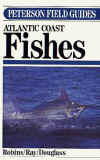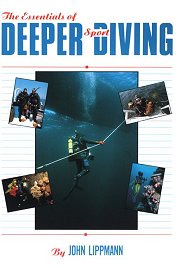Artificial Reefs References
New Jersey
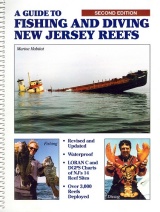
A Guide to Fishing & Diving New Jersey Reefs
NJ Division of Fish & Wildlife, 2008 edition
68 pages, illustrated, b&w, waterproof
Includes GPS numbers for all reef sites. This invaluable book has been out of print for years.
New York
Includes GPS numbers for all reef sites.
- New York Artificial Reef Guide 2019
- Artificial Reef Bathymetry
- New York Artificial Reef Plan 1993 ( dry reading )
Delaware
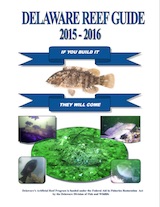
Delaware Reef Guide 2015-2016
State of Delaware
Department of Natural Resources
Division of Fish and Wildlife
Includes GPS numbers for all reef sites.
Out of Print
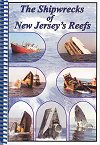
The Shipwrecks of New Jersey Reefs
NJ Division of Fish & Wildlife, 2003
153 pages, illustrated, b&w
Includes Loran and GPS numbers for all reef sites.
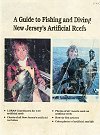
A Guide to Fishing & Diving New Jersey's Artificial Reefs
New Jersey Department of Environmental Protection, 1989
70 pages, illustrated, color & b&w
The first published guide to New Jersey artificial reefs. Thanks to Capt Steve Nagiewicz for giving me his copy.
Papers
- Guidelines for Marine Artificial Reef Materials, 2020
- Guidelines for Marine Artificial Reef Materials, 2004
- Guidelines for Marine Artificial Reef Materials, 1997
- Coastal Artificial Reef Planning Guide, 1998
- Marine Life Colonization of Experimental Reef Habitat
- Underwater counts of fish and lobster inhabiting Reef Ball habitats on New Jersey ocean reef sites
- Tagging Study Of Black Sea Bass In New Jersey Ocean Waters
- Survey of New Jersey's Recreational Wreck / Artificial Reef Fisheries, 2000
- Micro-Movements of Black Sea Bass on the Atlantic City Reef Site
- The Importance of Artificial Reef Epifauna to Black Sea Bass Diets
- Use of Artificial Reefs by Commercial Fish and Lobster Potters, 1995
- New Jersey Saltwater Fishing Guide
- South and Mid-Atlantic Reef Perspectives
- Maryland Artificial Reefs Poster
- Maryland Artificial Reefs Plan
- NJ Artificial Reef Plan 2005
- Understanding the Potential Economic Impacts of Sinking Ships for Scuba Recreation





